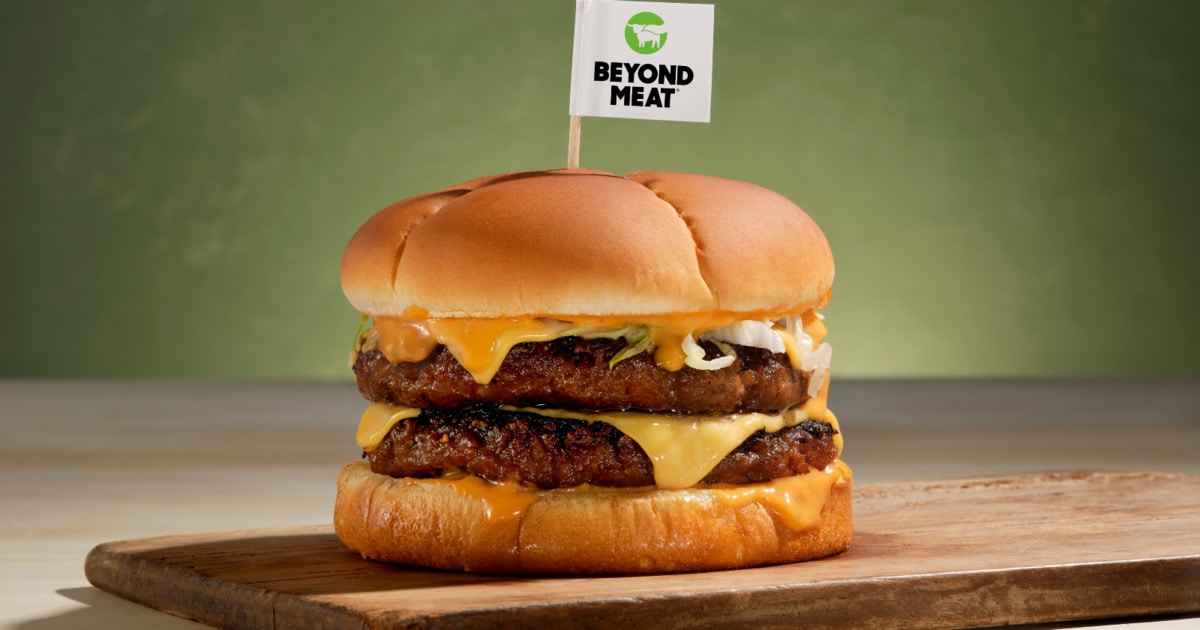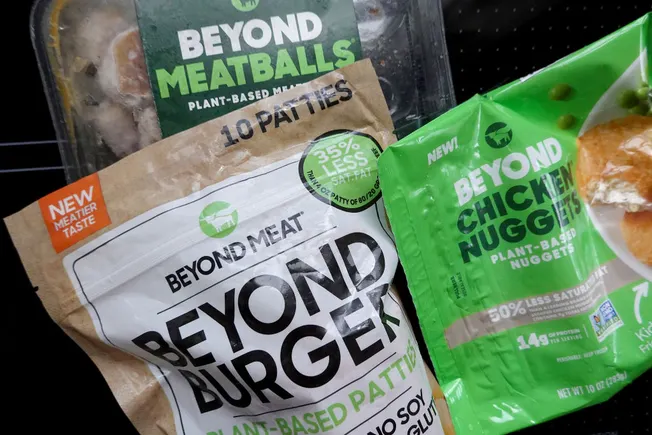Beyond Meat’s $100 million lifeline from Unprocessed Foods, an affiliate of the Ahimsa Foundation, comes at a moment of reckoning for the once high-flying plant-based meat brand. The financing, structured as a senior secured delayed-draw term loan, includes an interest rate of 12 percent until February 7, 2030, rising to 17.5 percent thereafter. It is a high-stakes bet, not just for the company, but for the broader plant-based movement it helped mainstream.
The deal offers Beyond Meat access to urgently needed liquidity. In return, Unprocessed Foods receives warrants to buy up to 12.5 percent of the company’s current outstanding shares, with an exercise price tied to the company’s stock performance. It is a clear sign of confidence from a mission-aligned investor.
Beyond Meat
“This facility provides us with additional liquidity as we advance our strategic priorities and invest opportunistically to help us drive our growth plans,” Beyond Meat CEO Ethan Brown said in a statement. “We are pleased to welcome a new investor who deeply understands our industry and is mission-aligned with our plant-based ethos.”
But sentiment on Wall Street has been far less enthusiastic. Beyond Meat’s stock, which once traded above $200 in 2019, closed at $2.47 on May 14. It is now worth less than three percent of its peak value. In the first quarter of 2025, Beyond Meat reported a net loss of $54.5 million on $68.7 million in net revenues, down 9.1 percent from the year prior. This marked the company’s ninth consecutive quarter of losses.
The relevancy struggle
Once hailed as the future of food, Beyond Meat has been unable to convert brand awareness into profitability. Its flagship products—plant-based burgers and sausages designed to mimic real meat—are now crowded out by both competitors and shifting consumer preferences. According to the Good Food Institute, US plant-based meat sales fell seven percent in 2024, with unit sales declining by 11 percent. This contraction marks the third consecutive year of declines, suggesting deeper structural issues beyond brand-level missteps.
 Carl’s Jr.
Carl’s Jr.
Retailers have responded accordingly. Dunkin’, Del Taco, and Carl’s Jr. discontinued Beyond Meat items from their stores due to lagging sales; McDonald’s also dropped its plans to offer a Beyond Meat McPlant burger nationally after it failed in test markets. Data from SPINS show a steady erosion of the company’s market share.
This is not the first time Beyond Meat has leaned on debt to stay afloat. Last year, it amended a previous convertible note agreement of nearly $1.2 billion, and in 2023, the company laid off more than 200 workers and cut its manufacturing footprint. The latest cash infusion may help stave off insolvency in the near term, but it does little to resolve underlying operational inefficiencies and an identity crisis within the plant-based sector.
 Beyond Meat
Beyond Meat
That identity crisis is rooted in the tension between mission and market. Beyond Meat built its brand on values of health, sustainability, and animal welfare—yet its processed offerings have faced scrutiny from nutritionists and whole-food advocates. As consumers gravitate toward cleaner labels and less processed proteins like tofu, lentils, or mycelium-based innovations, Beyond Meat has found itself caught in the middle.
Efforts to reposition the brand have included a rollout of a reformulated burger with fewer ingredients and improved nutritionals as well as a range of cleaner sausages. But the rebrand has failed to generate meaningful excitement. Foodservice partnerships, long considered a buffer against volatile retail sales, have also struggled to gain traction post-pandemic. The company’s recent Planting Change short film, aimed at distancing itself from processed food, also fell short in generating prolonged buzz.
A changing plant-based landscape
Meanwhile, competitors have capitalized on Beyond Meat’s vulnerabilities. Impossible Foods, its closest rival, has expanded into new categories, including plant-based chicken nuggets and steak bites. Smaller startups, like Juicy Marbles and Chunk Foods, are leveraging fermentation and whole-cut meat analogues to differentiate themselves.
And yet, the future of plant-based meat is not as dire as it may seem. Globally, the sector is still expected to grow. A recent report by Research and Markets projects the global plant-based meat market will reach $21.8 billion by 2030, up from nearly $9.6 billion in 2024, driven in large part by demand in Asia and Latin America. But in the US, growth may require a pivot away from imitation and toward identity—less about mimicking meat and more about celebrating plants.
“Beyond Meat is a category-leading business with exceptional products, a strong commitment to nutrition and ingredient integrity, and a globally recognized brand,” said Shaleen Shah, president of Ahimsa Foundation. “This reflects our expectation to be invested in Beyond Meat’s growth and success for the long term.”
That long term survival may hinge on Beyond Meat’s ability to navigate this shift. It has the brand recognition, infrastructure, and mission-aligned funding to reinvent itself. But reinvention will require more than just cash. Beyond Meat must now define how far beyond faux meat it can actually go.




